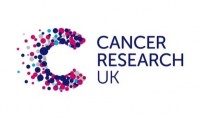-
IGM jettisons workforce and blood cancer programme to refocus pipeline
- Source: drugdu
- 100
- December 8, 2023
-
UK-India research project trialling easy-to-use UTI test to support fight against AMR
- Source: drugdu
- 94
- December 6, 2023
-
Cancer Research UK and Guardant collaborate to advance cancer detection and treatment
- Source: drugdu
- 89
- December 6, 2023
-
Lilly Puts Potential $660M on the Line for Protein-Protein Interaction Blockers
- Source: drugdu
- 159
- December 1, 2023
-
NeoImmuneTech bags orphan drug tag for IL-7 acute radiation syndrome treatment
- Source: drugdu
- 96
- November 22, 2023
-
Stem-cell-derived brain cells hold promise for Alzheimer’s, Parkinson’s research
- Source: drugdu
- 114
- November 21, 2023
-
China’s NMPA grants conditional approval for Apollomics’ NSCLC drug
- Source: drugdu
- 105
- November 21, 2023
-
Alfasigma opens new doors in the US with Intercept acquisition
- Source: drugdu
- 117
- November 10, 2023
-
Alliance for mRNA Medicines launched to accelerate global innovation
- Source: drugdu
- 100
- November 4, 2023
-
AI may help identify potential gonorrhea vaccine proteins
- Source: drugdu
- 181
- November 2, 2023
your submission has already been received.
OK
Subscribe
Please enter a valid Email address!
Submit
The most relevant industry news & insight will be sent to you every two weeks.













